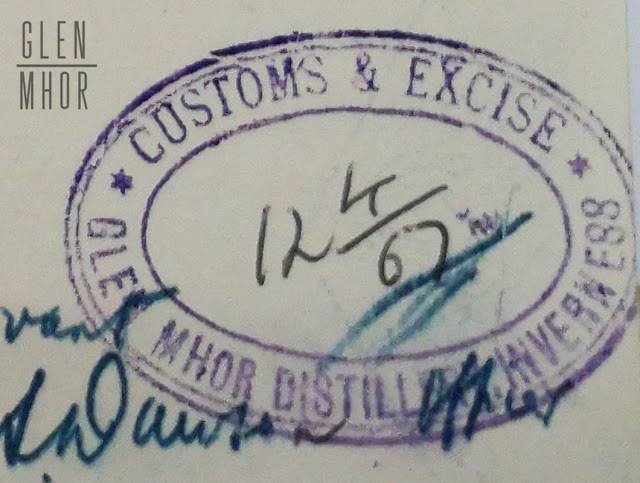Glen Mhor Logbook 12th April 1967
A new logbook entry documents the provision of Double Duty Allowance at Glen Mhor distillery, necessitating additional man-hours to ensure legal compliance.
Our current Timeline has not yet highlighted any work at the distillery during this period, leaving the purpose of these man-hours a mystery. They may reflect a shift towards a new way of operating with less emphasis on one fixed officer role, or could have another explanation. If there is anything else behind these hours we will find out one day.
In the meantime, the data provides the bonus of naming the four individuals receiving the double duty payments. The short periods involved, ranging from a day to a couple of weeks, suggest that their purpose was to provide holiday cover. The Excise office in Inverness could rely on several individuals to help distilleries when shortfalls occurred.
The actual entry, reads as follows:
'Hon Sirs,
Double Duty Allowance
Glen Mhor Distillery YE 31/3/67
I claim as follows:
Gross units on 31/3/67 2132.25
Less assistance at 6.5hrs per day
24.5 x 6.5 = 159.25
Net units of station 1973
Deduct 1870
Excess over 1870 is 103
Divide by 4 = 25.75 payments
Double Duty payable 25.75 x £2-6-6 = £59-17-4
Less amounts due to officiators as under £18-19-4
(Final amount) £40-18-0
Your obedient servant,
G.S. Dawson, officer'
I discussed this entry with Alan Winchester and he wondered if this an example of Revenue Assistants, as they were employed in Distilleries even when a resident officer was on site:
They were uniformed, reminding you of a petty officer in the Royal Navy, but were known as "Watchers", after the review of Customs and Excise in the 1980s' when the way of working was reviewed and over time saw the removal of Officers and Revenue Assistants, would sit in the Customs and Excise office in each of the Duty Free Warehouses, when the Trader i.e. the Distillery workers were working in a Duty Free Warehouse, as the Duty Free Warehouses were doubled locked, C & E and Traders locks. Also they would tally the casks going out when the Crown Lock Vehicles were introduced, prior to that every cask despatched was dipped and strength checked before dispatch and receipt, and the transport mode was rail or road was called Open transport.
Next week, the very last page from this remarkable logbook.
This Log Book comes from the Highland Archives Centre (HCA/D31/4/1/25) and is watermarked for its protection. As with any images on this website, please ask first before using and always give credit.


Comments
Post a Comment